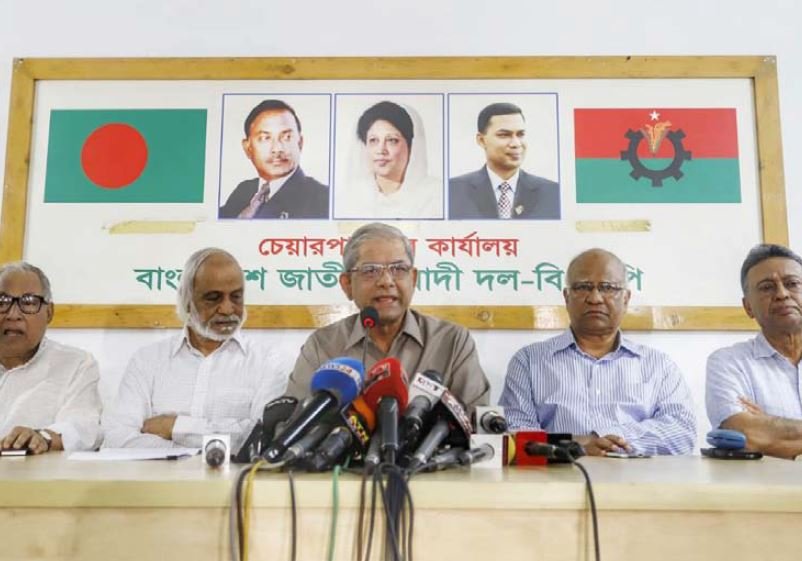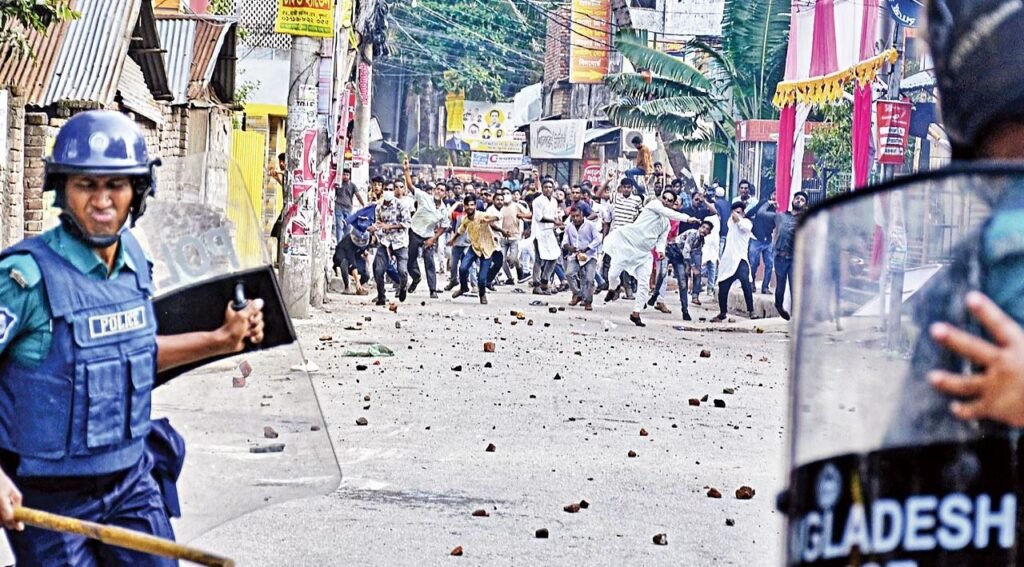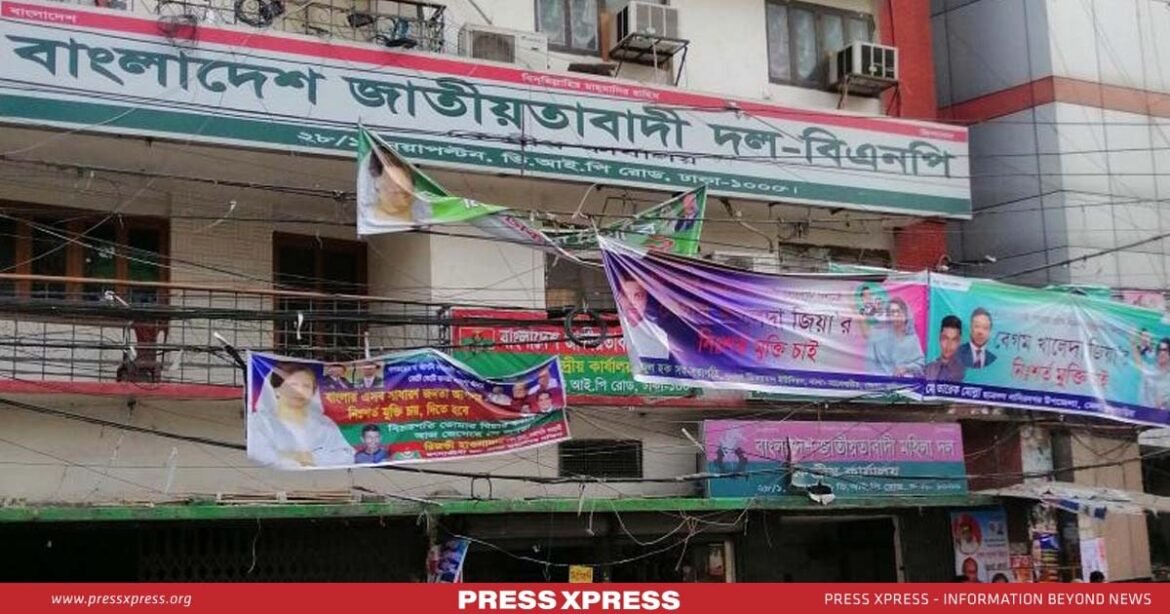The Bangladesh Nationalist Party (BNP) involvement in various questionable activities and its alignment with Jamaat-e-Islami have hindered its ability to present itself as a credible alternative to the Awami League. Still, this party is making movement plans on the street. They are planning more agitations to create anarchy in public life.
This is how the Bangladesh Nationalist Party (BNP) is placing deep concern over its leader Khaleda Zia’s health condition and has given significant importance to the month of October in aiming to gear up the movement to set her free. The party strategists almost contemplated the introduction of a major political initiative in the initial week. This initiative will include revisions to the movement’s objectives and demands.
You can also read: BNP Intrigue to Halt Polls, AL says
With BNP Chairperson Khaleda Zia’s health condition worsening and the prospects of foreign medical treatment diminishing, opposition parties are persisting in their ongoing campaign, which seeks both the release of Khaleda Zia and the resignation of the current government to realize the Caretaker Government (CTG), which is unconstitutional in nature.
High-ranking BNP leaders have stressed the need for a political resolution to the electoral issue before finalizing the movement’s schedule. They have also emphasized that this upcoming movement is poised to be the most extensive in scale.
Initially, the BNP had planned to peak its movement in mid-October, focusing on the demand for fair and impartial elections under the CTG. However, Khaleda Zia’s health concerns have become a central focus, given her ongoing medical treatment at Evercare Hospital in Dhaka for the past six weeks.
A senior BNP official stated, “Our movement now pivots around the imperative of securing better treatment for her.” The leadership has intimated that the movement’s trajectory could shift in response to a 48-hour ultimatum issued to the government.
So far, they are not sure about their movement directions as always they have a fumbling condition.
BNP Runs on the Weaker Leadership
Even after accusing AL of multiple allegations, why has the BNP failed to mount a successful large-scale protest to make the polls atmosphere enchase? Indeed, due to the fragmentation of the BNP and a lack of competent leadership, there hasn’t been a significant large-scale protest in recent years. Contrary, we have seen that the Awami League has held two consecutive elections under its strong leadership and drew a big majority in the 2014 and 2018 elections amidst accusations of vote rigging and the absence of the BNP from the election.
A prominent leader has proposed the possibility of the Awami League stepping down from power in October due to mounting public protests and international pressure. The envisioned outcome is the establishment of a neutral government that ensures free, equitable, and widely accepted elections. Should this scenario materialize, the people could once again choose the BNP to govern the nation. In contrast, if such conditions are not met, the BNP leader indicated that the party might abstain from participating in the elections.

Mirza Fakhrul affirmed the BNP’s unwavering commitment to see the movement through to its conclusion. However, he refrained from making a definitive statement about whether these efforts might escalate to strikes or even clashes. He emphasized that the course of action would be dictated by the prevailing situation, with the paramount consideration being the interests of the people.
Internal sources within the BNP have noted an increased participation of ordinary citizens in the ongoing peaceful program. However, they acknowledged that the program alone may fall short of meeting their demands. Consequently, they are actively preparing to implement a program aimed at compelling the government to resign, which includes plans to besiege key locations such as the court, the Prime Minister’s office, the secretariat, and Dhaka city.
Regarding their readiness for elections, BNP leaders asserted their preparedness to participate at any moment but held a strong belief that the party would not engage in elections under the current government’s administration.
AL alleges BNP of Disrupting the Democratic Path
Prime Minister Sheikh Hasina has expressed her apprehensions regarding the Bangladesh Nationalist Party’s (BNP) commitment to democracy. She asserts that while the BNP professes its support for democracy, it harbors doubts about its true dedication to democratic principles. Sheikh Hasina believes that the BNP may harbor intentions to subvert the country’s democratic foundations and has consequently advised citizens to remain vigilant against individuals who pose potential threats to the nation. This includes those who engage in acts of intellectual assault, individuals with a history of war crimes, perpetrators of sexual violence, and those involved in looting.

Furthermore, she has issued a call for heightened vigilance concerning individuals associated with violent activities, terrorism, militancy, grenade attacks, and the illicit trade of firearms. Sheikh Hasina contends that the BNP is actively engaged in efforts to destabilize the nation.
In reference to the BNP’s previous periods in power, specifically from 1991 to 1996 and from 2001 to 2006, Prime Minister Sheikh Hasina characterizes these periods as a “dark age.” She has issued a stark warning to the populace, cautioning that if the BNP were to regain power, the nation could regress to what she describes as a dark age.
Conclusion
As time has entered in October, the Bangladesh Nationalist Party (BNP) is reconsidering its political program, with a growing emphasis on the health of their leader, Khaleda Zia, and the demand for CTG. BNP leaders, while originally planning a mid-October movement centered around electoral fairness, are now redirecting their efforts toward securing better treatment for Khaleda Zia, who has been undergoing medical care in Dhaka. The party aims to create a conducive environment for a fair election compromise and the release of Khaleda Zia through peaceful programs. Internal sources reveal grassroots pressure for a strict program on the Khaleda Zia issue, hinting at significant changes in the movement’s agenda. BNP leaders remain committed to their cause, but the specific tactics, including the possibility of strikes or clashes, will depend on the evolving situation and the interests of the people. The party continues to prepare for elections but maintains reservations about participating under the current government. Meanwhile, Prime Minister Sheikh Hasina expresses concerns about the BNP’s stance on democracy, warning against potential threats to the nation should the BNP return to power. She vividly said, a day back in London, “Democracy should continue in Bangladesh at any cost. In no way, the undemocratic forces can assume power”.


